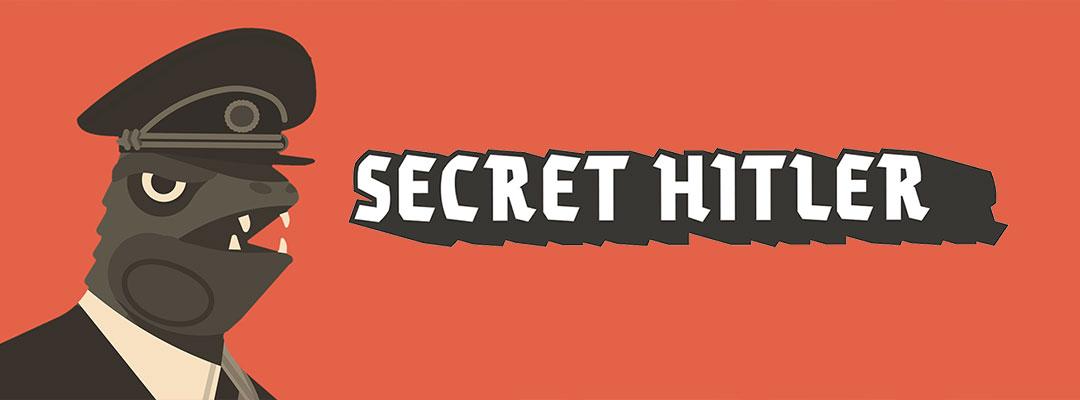“How does the game emphasize social deduction through its mechanics? Connect your analysis to the game’s formal elements.”
Game: Secret Hitler
Target Audience: Young adults/adults (due to the theme)
Game Designers: Max Temkin, Mike Boxleiter, Tommy Maranges
Platform: Tabletop board game
Without a shadow of a doubt, Secret Hitler emphasizes social deduction through its game mechanics. In this post, I’ll touch on and analyze several of these based on my observations (this was my first time playing!).
The first way that the game emphasizes social deductions through its mechanics is via the team/player layout. Specifically, playing the game, it becomes super clear that the foundation of “Secret Hitler” lies in its roles and teams – the liberals versus the fascists, with Hitler playing for the fascist team but with a unique win condition. Players don’t know who’s who (except for the fascists, who know each other and who Hitler is), and it is this lack of information from which the game’s social dynamics really shine. Because of this, players are constantly questioning, analyzing, and second-guessing each other’s moves and words. It increases the boundaries of the game that we learned about from the videos immensely, making otherwise normal activities things completely suspicious (for instance, when we played, players would often call out/berate other players who were ‘looking at each other weird’ since this might be a sign that they were fascists, even though they weren’t).
Another explicit feature that cranks up the social deduction dial is the mechanic of the different ‘jobs’ that the players can have. Specifically, players take turns being the President and Chancellor, picking policies from a deck stacked with more fascist than liberal policies. This imbalance means that even the most well-intentioned liberal players may be forced to enact fascist policies, adding to the fog of uncertainty and increasing mistrust between players, further emphasizing social deduction. The moment a policy is enacted, the speculation begins: Was this a strategic move by a fascist, an unfortunate hand for a liberal, or a subtle signal from Hitler himself? This mechanic cleverly forces players into a web of accusation and defense, where every action could be a clue or a misdirection.
Then, there’s the mechanic of the President’s powers. As the game progresses and more fascist policies are passed, the President gains abilities that can significantly impact the game, such as investigating a player’s party membership card or even assassinating a suspected fascist. This escalation not only intensifies the game’s tension but also magnifies the scrutiny on each player’s decisions and behaviors. These powers become a scarce resource – who should we inspect, and why? further engaging all people involved and adding another really interesting layer to the social deduction.
Another crucial mechanic that emphasizes social deduction is the game’s rules around communication rules. Players are forbidden from revealing specific cards in their hand, ensuring that much of the game’s negotiation and persuasion is based on trust, or the lack thereof. This restriction amplifies the social deduction element, forcing players to read between the lines, detect lies, or truth in the tone, and observe behavior to deduce alliances. It turns the game into a delicate dance of information, where what is not said is just as important as what is. IT also drives you nuts (lol).
Finally, the Hitler reveal mechanic is a ton of fun and adds yet another layer to the social deduction gameplay. The instant win condition for fascists if Hitler is elected Chancellor after a certain point means that the identity and protection of Hitler become the fascist’s number 1 priority throughout the game, increasing the stakes for deducing who is who as fast as possible (if you’re not a fascist).




